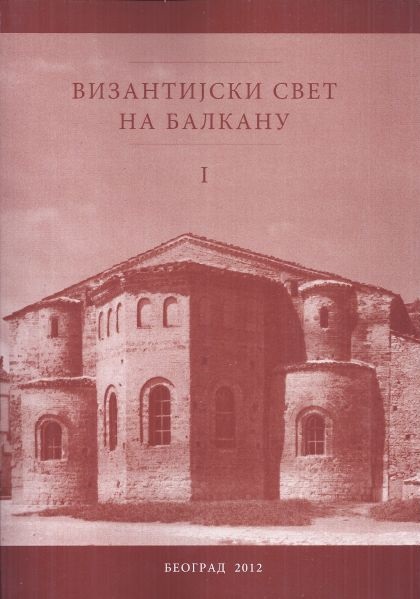Срби у опсади Филаделфије
The Serbs in the Siege of Philadelphia in 1390
Author(s): Marko Šuica
Subject(s): Military history, 13th to 14th Centuries, The Ottoman Empire
Published by: Vizantološki institut SANU
Summary/Abstract: Soon after the Kosovo battle (1389), new Ottoman sultan Bayezid I Yildirim moved in rush from the region of Balkan Peninsula to Anatolia in order to consolidate his authority and reign. In the next two years, he had led several war campaigns against the Turkish emirates which he had wanted to conquer and include in Ottoman state. At the same time Bayezid I didn’t want to give up on the results of Europe conquest achieved by his father, trying to provide financial and military resources from already subordinated Balkan Christian states. The heirs of prince Lazar have accepted Bayezid’s supremacy by the year 1390. The exact chronology of referral Serbian legation to Ottoman ruler, headed by prince Stefan Lazarević who sworn allegiance and handed over his sister Olivera, as vassalage forfeit, has not been confirmed yet. The crucial argument for taking in consideration the year 1390 as a date when Serbian legation could have come to sultan Bayezids’ camp, could be traced in the Hagiography of Stefan Lazarević by Constantine the Philosopher. According to this source, the Byzantine emperor Manuel II and Serbian despot Stefan Lazarević at certain point have shared the same war experience in Bayezid’s campaigns. If the meeting of vassals in Serres in 1393 is excluded, which could not be considered as the military event, the reconstruction of possible joint participation in Ottoman campaigns leads us to two potential war episodes. The first is related to the siege of Philadelphia in 1390, the last Byzantine town in Anatolia. The second refers to the Ottoman conquest of Synope and Kastamonia from the year 1391. Stefan Lazarević’s possible presence in the Ottoman war camp during the siege of Philadelphia, indirectly constructed from the text of Byzantine historian Duca, some historians have used as the unquestionable fact. On the other hand, one letter from 1391, written by Manuel Paleologus during the mentioned Bayezids’ campaign leaves the hypothetical possibility that Serbian vassal troops, who had been fighting in Anatolia, were recruited from the Stefan Lazarević’s territory. Although it is impossible to give complete and fully reliable testimony of Stefan Lazarević’s formal participation in the conquest of Philadelphia, the confirmed presence of Serbian vassal troops in Anatolian campaigns show that political and social processes derived from the acceptance of Ottoman supremacy among the Balkan states were rampant. In the next historical phase of Ottoman conquests those changes brought to the complete breakdown of Christian states in the Balkans.
Book: Византијски свет на Балкану I-II
- Page Range: 385-396
- Page Count: 12
- Publication Year: 2012
- Language: Serbian
- Content File-PDF

